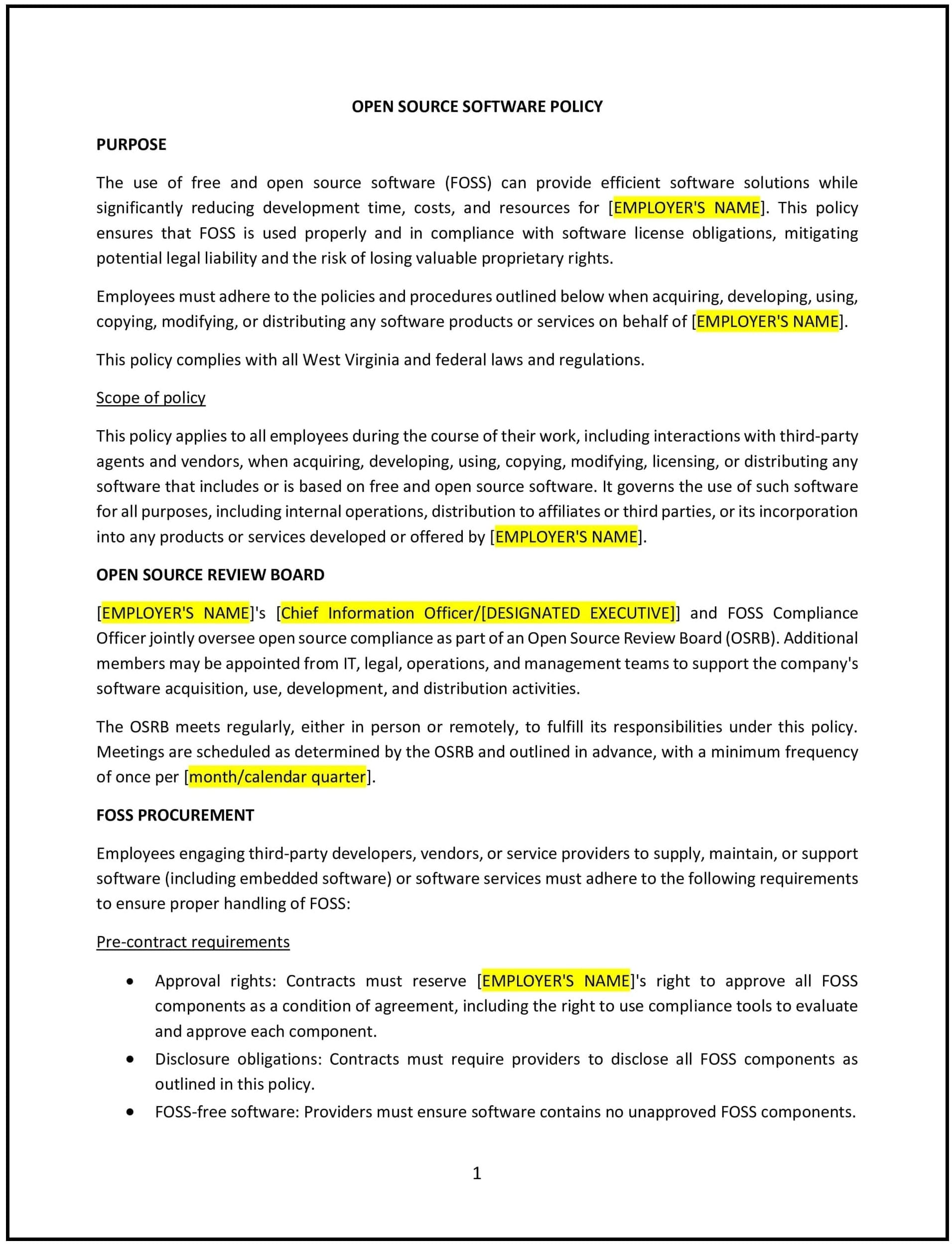Open source software policy (West Virginia): Free template
Got contracts to review? While you're here for policies, let Cobrief make contract review effortless—start your free review now.

Customize this template for free
Open source software policy (West Virginia)
In West Virginia, an open source software policy provides guidelines for the use, development, and distribution of open source software (OSS) within the organization. This policy ensures that the use of OSS complies with licensing requirements, minimizes legal risks, and aligns with the organization’s operational goals.
The policy outlines acceptable use, approval processes, and responsibilities for managing OSS while safeguarding proprietary information and intellectual property.
How to use this open source software policy (West Virginia)
- Define acceptable use: Specify how OSS can be used within the organization, including the types of projects and tasks for which it is appropriate.
- Establish approval processes: Require employees to obtain approval before using or integrating OSS into company systems or projects.
- Address licensing compliance: Provide guidelines for reviewing and complying with OSS licenses, such as GNU, MIT, or Apache licenses.
- Protect intellectual property: Prohibit the unauthorized distribution of proprietary software or code derived from OSS to safeguard company assets.
- Support compliance: Ensure the policy aligns with federal laws and industry standards for OSS usage and distribution.
Benefits of using an open source software policy (West Virginia)
- Mitigates legal risks: Enhances compliance with OSS licenses and minimizes the risk of infringement or legal disputes.
- Enhances efficiency: Encourages the safe and effective use of OSS to reduce development costs and accelerate project timelines.
- Protects intellectual property: Establishes safeguards to prevent the misuse or unauthorized sharing of proprietary assets.
- Promotes transparency: Provides clear guidelines for employees on the appropriate use of OSS in the workplace.
- Supports compliance: Aligns with federal and industry regulations for OSS management, reducing potential liabilities.
Tips for using an open source software policy (West Virginia)
- Educate employees: Provide training on OSS licensing, compliance requirements, and best practices for using open source tools.
- Monitor usage: Implement systems to track OSS usage within the organization and ensure compliance with licensing agreements.
- Review licenses: Regularly review the terms of OSS licenses to ensure continued compliance with their requirements.
- Encourage collaboration: Support employee involvement in open source communities while adhering to organizational policies and compliance standards.
- Update regularly: Revise the policy to reflect changes in OSS licensing trends, federal regulations, or organizational needs.